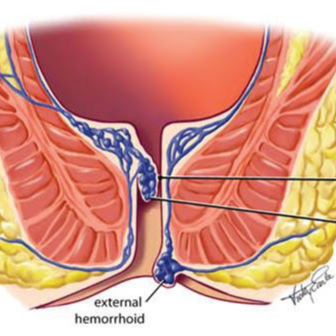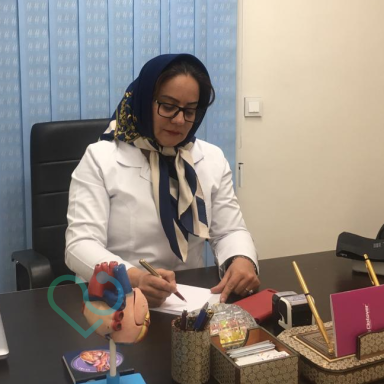What Causes Hemorrhoids?
The exact causes of hemorrhoids are not fully understood, but possible contributing factors include:
- Straining during bowel movements
- Complications from chronic constipation (read more here)
- Sitting for prolonged periods, especially on the toilet
- Family history of hemorrhoids
Factors Influencing the Development of Hemorrhoids
Genetically, hemorrhoids can be passed from parents to children, so if your parents had hemorrhoids, you're more likely to develop them as well. Lifting heavy objects, being overweight, or experiencing other constant pressure on the body can increase the risk of developing hemorrhoids.
Prolonged standing, anal sex, and chronic diarrhea can also increase the risk of developing hemorrhoids (Hemorrhoid). In pregnant women, as the uterus grows, pressure on the veins in the colon increases, leading to the development of hemorrhoids (Hemorrhoid).
How Are Hemorrhoids Diagnosed?
Hemorrhoids are usually diagnosed through a visual examination of the anus, but to confirm the diagnosis, the doctor may perform a different examination to check for abnormalities inside the anus. During this examination, the doctor inserts a lubricated, gloved finger into the rectum, and if anything unusual is felt, they may recommend a sigmoidoscopy test.
In sigmoidoscopy, the doctor uses a small fiber-optic camera inserted into the rectum to check for internal hemorrhoids.
Treatment Options for Hemorrhoids
- Pain Relief Methods for Hemorrhoids
Sitting in a warm bath for at least 10 minutes a day helps alleviate pain from hemorrhoids. For external hemorrhoids, sitting on a warm water bottle can also help. However, if the pain is unbearable, suppositories, ointments, or creams may be used to relieve burning and itching.
- Fiber Supplements for Improving Hemorrhoids
If constipation is the cause of hemorrhoids, using fiber supplements that soften stool can help improve hemorrhoids. Two common supplements are psyllium and methylcellulose.
- Home Remedies for Hemorrhoids
Topical treatments such as hydrocortisone or hemorrhoid creams can help relieve pain and discomfort from hemorrhoids. Since soap can worsen hemorrhoids, do not use soap for cleaning the anus. Instead, use a soft toilet paper when drying the area.
Using cold compresses on the anus can also help reduce swelling from hemorrhoids. Pain relievers such as acetaminophen, ibuprofen, or aspirin can also provide relief from pain or discomfort.
Medical Treatments for Hemorrhoids (Hemorrhoid)
If home treatments do not improve hemorrhoids, the doctor may recommend rubber band ligation. In this procedure, a rubber band is placed around the anus to cut off blood circulation to the hemorrhoid, causing it to shrink. This method should only be performed by a specialist, and if rubber band ligation is not appropriate, the doctor may suggest injection therapy or sclerotherapy. In this method, the doctor injects a chemical substance to shrink the hemorrhoid.
Ways to Prevent Hemorrhoids (Hemorrhoid)
To prevent or reduce the severity of hemorrhoids, avoid straining during bowel movements and increase your water intake, as drinking enough water softens stool. Use the bathroom as soon as you feel the urge to prevent hemorrhoids from developing. To prevent constipation, exercise regularly and avoid sitting for long periods on hard surfaces like concrete or tiles. Eating high-fiber foods can reduce the likelihood of developing hemorrhoids. Good fiber sources include wheat, brown rice, oatmeal, pears, carrots, and bran, which help soften stool and make bowel movements easier.
Complications of Hemorrhoids
Complications from hemorrhoids are rare but can include:
- Blood clot formation in the swollen vein
- Bleeding
- Iron-deficiency anemia due to blood loss
By following the doctor's instructions, maintaining a healthy diet, exercising, and avoiding prolonged sitting, you can reduce the symptoms of hemorrhoids.












Our Customers' Comments
No comments registered